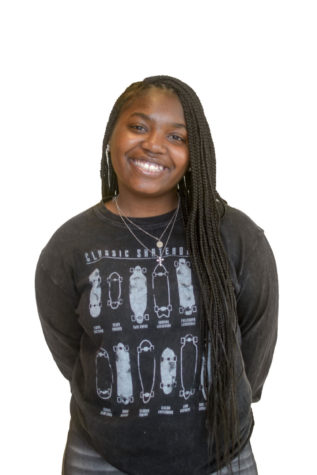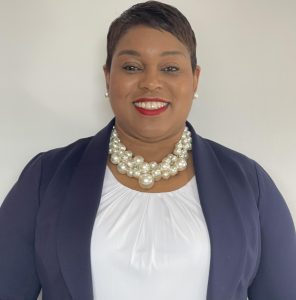Addressing the Mental Health Stigma in the Black Community
February 24, 2020
Mental health can take a toll on one’s mind and body. To ease the pain, many people go to a therapist to talk out their issues and get help handling aspects of life that are negatively affecting them. However, this is not always the case in the black community.
The issue of masking the pain associated with drugs and playing sports is especially prevalent among black men. According to Maya Jones’ article “Black Student-Athlete Summit raises awareness about mental health” in The Undefeated, “ In 2018, a NCAA survey revealed that 23 percent of college athletes reported receiving a prescription for a pain medication and 6 percent reported using an opioid without a prescription in the previous year.” This article shines a light on the experiences that many black men face and the issues and frustrations they feel that can lead to depression, anxiety, eating disorders, self-medicating, and other dangerous behaviors.
At the most extreme level, the end result can be catastrophic, including suicide. In Kevin Blackistone’s article “Sports couldn’t save Bryce Gowdy, and his suicide shines a sad spotlight on an ignored crisis” for The Washington Post, he writes, “We pay attention to the black boys who entertain us. Others may as well be invisible.” Blackistone’s article explains how yet another black man committed suicide and his family and friends did not see the signs. He explains that more black athletes may be experiencing mental health issues and if they continue to be ignored then more will commit suicide.
In society today, dangerous and demoralizing actions such as police brutality, racial discrimination and gun violence that directly affect black men can leave them with issues that they may not acknowledge or accept. The American Psychological Association spoke about this very issue with British professional boxer Aubrey Harrison, who talked about the challenges he faced during his career. “I had to make sure I played the part. This persona was one that portrayed a tough, nonemotional black male. I couldn’t show any type of vulnerable emotion, and I definitely couldn’t cry.” Harrison’s experience is very common as black men are told that they should “not cry” while growing up because it can be seen as a weakness, which forces many to bottle up their feelings, negatively impacting their mental health as they grow up.
As these young men grow older, many continue to cover up their underlying struggles, which affects their personal and professional lives. The idea of sharing your struggles with others continues to be viewed as “non-manly” and this is why it is hard for some to seek help from professional therapists and experience serious issues. According to the Health and Human Services Office of Minority Health, “in 2017 African American men are 10% more likely to experience serious psychological distress.’’ The experiences black men face socially and personally affect how they cope with their suffering. In not seeking help, these men not only suffer, but so does the community at large as it exacerbates their personal struggles and adds to the cycle of distress. The lack of information and misunderstandings about mental health prevents black males from seeking treatment.
The representation of African Americans in college in key areas such as administration, teaching roles, and counselors is lacking and this affects how black males at those institutions feel in terms of connection. In lacking connection, they feel “disenfranchised and muted,” according to Monica Williams’ “African Americans and Psychotherapy.” This affects their involvement in key areas at schools, including seeking help for both mental and physical needs. This same sentiment holds for overall society as many African Americans, in general, feel that therapy is not an option or will not be effective because there is a lack of African American representation in the field. According to The Hechinger Report, “nationally blacks make up only 5.5 percent of college faculty.” There is a sense of not being able to connect with therapists of other ethnicities. According to the National Alliance of Mental Illness, members of minority communities often experience bias and mistrust in health care settings, which often leads to delays in seeking care.
The idea is that most black men can relate to other black men through common experiences and many would not feel comfortable sharing their struggles in fear of not being understood. Perhaps the answer is for black men to seek help from other black men. In her article “Your therapist is white. You’re not. Is this a problem?” Rose Hackman spoke to Randolph McLaughlin, a PhD student in clinical psychology, who explained that therapists who lack the same background as a patient can make the client feel like they have been “put in a box that doesn’t fit.” Hackman adds that McLaughlin felt that “instead of being listened to, assumptions have been made.”
The delays in seeking treatment can stem from a number of issues, including not having proper access to health care. Statistics from the American Psychiatric Association reveal that “ In 2018, approximately 51% of African Americans are not covered by health insurance, compared with about 7% for non-Hispanic whites.” This means that most black men can not afford health care and thus are not able to even access therapy – even if they wanted to do so. The disadvantages of living in poverty, which many African Americans experience, affects their socio-economic opportunities, and affects their health. In order to get treatment, a person would have to pay for it, which blocks many from the very treatment they need.
Mental health needs to be taken more seriously in the black community, but society also needs to do more. Current issues in society such as police brutality, gun violence and racial discrimination traumatizes many African Americans. The traumatic events that African Americans experience from police brutality to gun violence have a serious impact on them.
According to the U.S. Department of Health and Human Services Office of Minority Health, “in 2017, suicide was the second leading cause of death for African Americans, ages 15 to 24.” The impact of trauma deeply affects these young people and results in tragic circumstances that exacerbate the issue even further. The need for change is imminent and we all can contribute if we put in the effort and talk to one another, seek change in the larger community, and improve access to health care.













































